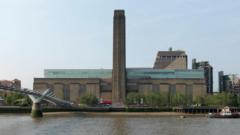Are Londoners Right to be Outraged by the New Restaurant Charge?

Understanding the 'Carbon Free' Fee: A Look into Restaurant Pricing Trends
If you've dined out recently, you might have noticed some unusual charges on your bill. Among these, the ‘Carbon Free’ fee has sparked quite a discussion among diners. This fee, which has been implemented by various restaurants, aims to address environmental concerns but has received mixed reactions from customers. In this article, we will explore the implications of such charges, the rationale behind them, and their impact on customer experience.
The Backlash Against Discretionary Charges
The recent incident involving The Pig and Butcher, a restaurant in Islington, London, highlights the growing backlash against discretionary charges. After a diner shared their receipt on Reddit, many commenters expressed their discontent with the added fee. Terms like ‘stupid and sneaky’ and ‘a load of b******s’ echoed through the thread, showcasing a sentiment that is becoming increasingly common among diners. This reaction reflects a broader concern about transparency and trust in the hospitality industry.
What is the ‘Carbon Free’ Fee?
At The Pig and Butcher, diners are presented with an optional ‘Carbon Free’ fee, which amounts to £1.23. This fee is aimed at supporting environmental initiatives through partnerships with charities such as GiftTrees and Street Smart. While the restaurant claims that this is an optional charge that customers can choose to remove, the mere presence of such a fee has drawn criticism. Many customers feel that it adds to the already rising costs of dining out and creates confusion regarding the total bill.
Understanding the Rationale Behind the Fee
The rationale behind implementing a ‘Carbon Free’ fee is rooted in sustainability efforts. According to a representative from Noble Inns, the parent company of The Pig and Butcher, the contributions collected from diners have resulted in significant donations to environmental charities. In fact, the company has reported that customers have donated over £31,000 to GiftTrees and more than £9,200 to Street Smart within a single calendar year.
What Does the Fee Support?
The funds collected through the ‘Carbon Free’ fee are intended to offset the environmental impact of dining experiences. For every contribution made, a tree is planted in the developing world, aligning with the principles of the Carbon Friendly Dining (CFD) Initiative. This initiative has reportedly resulted in the planting of over 4.5 million trees, thanks to contributions from millions of diners across various restaurants.
The Business Perspective: Benefits of Sustainability Initiatives
While diners may see the ‘Carbon Free’ fee as an unwelcome addition to their bills, restaurants like The Pig and Butcher view it as an opportunity for enhanced customer engagement. Participating in sustainability initiatives can offer several benefits, including:
- Increased Customer Loyalty: Customers are increasingly looking for businesses that align with their values, and restaurants that prioritize sustainability may attract a loyal clientele.
- Positive Brand Image: Sustainability efforts can enhance a restaurant's reputation, leading to better online reviews and word-of-mouth recommendations.
- Marketing Opportunities: Restaurants can leverage their commitment to environmental initiatives in their marketing strategies, attracting eco-conscious consumers.
- Incentives for Sustainable Practices: Certified restaurants can earn sustainable credits for every five trees planted, which can be used for products and services that further enhance their sustainability efforts.
Customer Sentiment: Navigating Confusion and Transparency
Despite the potential benefits for restaurants, customer sentiment remains a critical factor in the ongoing discussion about discretionary charges. Consumer champion Jane Hawkes emphasizes the need for clarity and choice when it comes to additional fees. Many diners feel frustrated when they are presented with added costs at the end of their meals, especially when those charges are labeled as optional but still impact the overall dining experience.
The Importance of Transparency
Transparency is vital in the hospitality industry, especially in times of economic uncertainty. Diners want to know exactly what they are paying for and why. Hawkes suggests that restaurants should incorporate sustainability efforts into their overall pricing structure rather than tacking on additional fees. This approach can help build trust and foster loyalty among customers.
Alternatives to the ‘Carbon Free’ Fee
As restaurants continue to explore ways to promote sustainability, various alternatives to discretionary charges are emerging. Some potential strategies include:
- Incorporating Sustainability into Menu Pricing: Restaurants can integrate the costs associated with sustainability initiatives into their menu prices, allowing customers to enjoy a meal without unexpected fees.
- Offering Optional Add-Ons: Instead of a blanket fee, restaurants could provide customers with the option to contribute to sustainability efforts during their meal, making the choice more explicit.
- Educating Customers: Providing information about the restaurant's sustainability initiatives and their impact can help customers understand the value of their contributions.
The Future of Dining: Balancing Profitability and Sustainability
As the conversation around sustainability continues to grow, restaurants must find ways to balance profitability with environmental responsibility. The introduction of fees like the ‘Carbon Free’ fee is just one approach, but it raises important questions about customer perceptions and expectations.
What Lies Ahead?
The future of dining may see more establishments adopting sustainable practices, but how they communicate these efforts will play a crucial role in shaping customer experiences. The hospitality industry must adapt to changing consumer preferences while maintaining transparency and trust. By doing so, restaurants can cultivate a loyal customer base that is supportive of their sustainability initiatives.
FAQs
What is the purpose of the 'Carbon Free' fee?
The 'Carbon Free' fee is intended to support environmental initiatives by planting trees and offsetting the environmental impact of dining. It aims to engage customers in sustainability efforts while contributing to charity.
Are customers obligated to pay the 'Carbon Free' fee?
No, the fee is optional. Customers can request to have it removed from their bill if they do not wish to contribute.
How do restaurants benefit from sustainability initiatives?
Restaurants can benefit through increased customer loyalty, enhanced brand image, marketing opportunities, and incentives for sustainable practices, ultimately leading to a more profitable and sustainable business model.
Conclusion: A Call for Thoughtful Dining Choices
As the dining landscape evolves, the introduction of fees like the ‘Carbon Free’ charge raises important discussions about sustainability, transparency, and customer experience. Diners are increasingly aware of the environmental impact of their choices, and restaurants must navigate these preferences thoughtfully. Ultimately, it is essential for establishments to communicate clearly and build trust with their customers. Will more restaurants adopt similar fees, or will they find more effective ways to promote sustainability? The future of dining is uncertain, but one thing is clear: customers want to feel good about their choices.
As we continue to explore the balance between dining out and sustainability, how do you feel about added fees like the 'Carbon Free' charge? Are there better ways restaurants can engage customers in their sustainability efforts? #DiningSustainably #RestaurantTrends #CustomerExperience
```Published: 2025-07-25 13:56:36 | Category: Food



